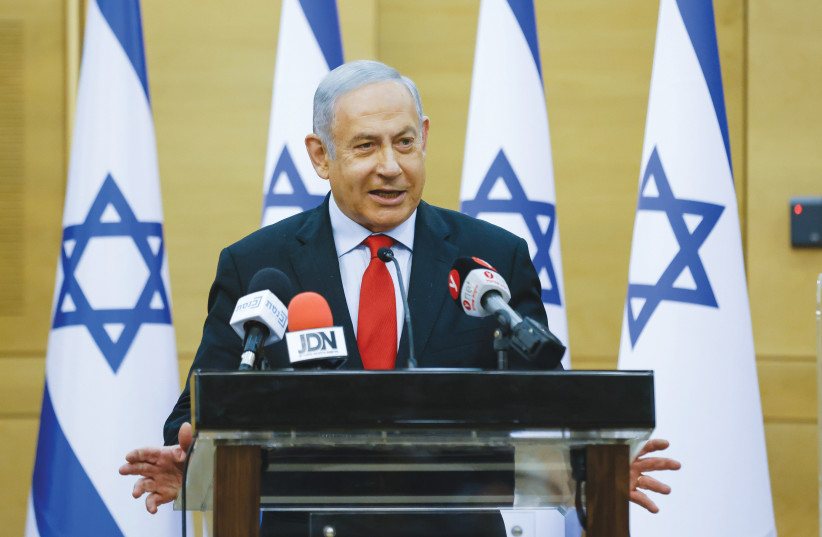Likud leader and opposition head MK Benjamin Netanyahu is facing internal criticism amongst campaign employees and volunteers for ignoring the party's grassroots campaign, according to a source from the Likud who is familiar with the campaign.
An SMS from "Likud branch managers" circulated on Monday calling on the party to appoint MK Yisrael Katz as the head of the campaign's "fieldwork" branch, since Netanyahu appointee Yossi Shelly is not doing a sufficient job, Ma'ariv reported. Katz, an opponent of Netanyahu, led the fieldwork ahead of the March 2020 election, in which the Likud won 36 seats. Katz denied involvement in the SMS.
According to the source, the campaign's budget is split into two main branches – a digital branch and a fieldwork branch. As the campaign nears its end both sides typically begin to fight for what remains of the budget. Katz in 2020 was able to block Netanyahu from appropriating funds towards the digital campaign, which he prefers, while Shelly already allowed a budget cut two weeks ago, the source said.
Channel 12 reported on Monday that this decision has led to "enormous pressure" within the campaign, as branch managers complained that they were forced to lay off workers and that they will not have enough manpower for campaigning outside of voting booths on election day.
Disputes have also broken out over appearances in the media. According to the source, MKs and candidates on the Likud list must toe the party's official line, which is sent out by the campaign managers. Those who are prone to slip or say something that was not approved in advance are not given opportunities to appear in the media.

According to data provided by Ifat Media Research to Channel 12, Katz appeared on mainstream television just seven times so far in the campaign, as opposed to MK Eli Cohen, who appeared 74 times, candidate and former UN Ambassador Danny Danon (61), MK Miki Zohar (55), MK Amir Ohana (49) and MK Yoav Kisch (44). Others who were left out included two other MKs who fought against Netanyahu in the primary election – Haim Katz (three appearances) and David Bitan (two). MK Yuli Edelstein, the only Likud member to announce that he would challenge Netanyahu for the party lead (and changed his mind shortly after the general election was announced has appeared just once so far.
A spat at the Likud headquarters
This was the background to a spat that broke out in Likud headquarters last week when Netanyahu's spokesperson Yonatan Orich reportedly locked MK Galit Distal Atbaryan on a balcony. Distal-Atbaryan was forced to knock on windows in order to have someone open the door for her. According to the source, the dispute broke out after Distal-Atbaryan complained that the campaign was not granting her enough media time. The two have since reconciled, the party announced later last week.
One initiative that has worked, however, is the "BibiBa" ("Bibi is Coming") – a bulletproof bus outfitted for Netanyahu to travel to Likud strongholds and speak directly to voters on their home turf.
In the 1980s, politicians in Israel were still traveling to city squares and giving speeches to people gathered there, the source explained. In the 1990s the speeches moved indoors and became political rallies. In the 2000s, the rallies were joined by digital services, mainly social media. Now Netanyahu has brought back the "city square" concept and taken it one step further, by going into residential neighborhoods. While reports on the number of people to turn up at "BibiBa" events have been disputed, the initiative succeeded in firing up parts of the Likud's political base, the source said.
